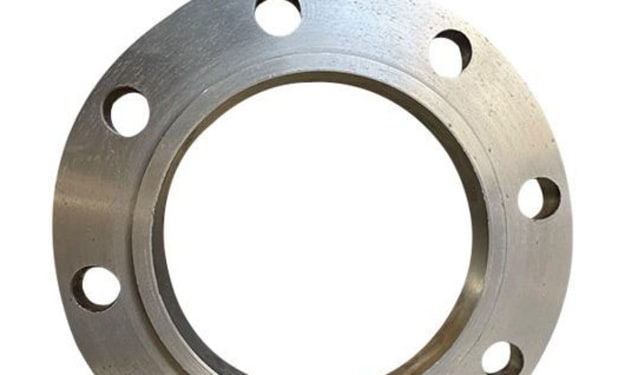Mindfulness in the Modern World: Techniques for Reducing Stress and Anxiety
Embracing Present Moments for Inner Harmony and Resilience

In today's fast-paced and interconnected world, stress and anxiety have become all too common. The pressures of work, social expectations, and constant exposure to digital screens can take a toll on our mental well-being. As a result, more and more people are turning to mindfulness as a powerful tool to alleviate stress and anxiety and find peace amidst the chaos.
What is Mindfulness?
Mindfulness is the practice of being fully present in the moment, aware of our thoughts, feelings, bodily sensations, and the surrounding environment without judgment. It is about cultivating a state of focused attention and conscious awareness, allowing us to embrace each experience with an open and non-reactive mind.
Though rooted in ancient meditation practices, mindfulness has gained significant popularity in recent years, as scientific studies have validated its numerous mental and physical health benefits. It offers a way to escape the cycle of stress, overthinking, and emotional turbulence that many of us face in the modern world.
Mindfulness Techniques for Reducing Stress and Anxiety:
Mindful Breathing:
One of the simplest and most effective mindfulness techniques is mindful breathing. By focusing on the breath, we anchor ourselves to the present moment, letting go of worries about the past or future. Find a quiet place, sit comfortably, and observe your breath as you inhale and exhale. Feel the air filling your lungs and notice the rise and fall of your chest. If your mind starts to wander, gently bring your focus back to the breath.
Body Scan:
The body scan is a technique that helps us become more aware of physical sensations and release tension. Lie down or sit in a comfortable position, and slowly direct your attention to different parts of your body, starting from the toes and moving upwards. Notice any sensations or areas of tightness without judgment. As you breathe out, release the tension and let go of any discomfort.
Mindful Eating:
In our busy lives, we often rush through meals without paying attention to what we are eating. Mindful eating encourages us to savor each bite, fully experiencing the taste, texture, and aroma of our food. Engage all your senses as you eat, and take your time to chew slowly. This practice not only helps in digestion but also enhances the enjoyment of our meals.
Gratitude Journaling:
Practicing gratitude is a powerful way to shift our focus from what is lacking to what we have. Keep a gratitude journal and write down three things you are grateful for each day. This practice fosters positive thinking and can improve our overall outlook on life, reducing stress and anxiety.
Mindful Movement:
Mindfulness can extend beyond meditation, even into physical activities. Engage in mindful movement practices like yoga, tai chi, or walking meditation. Pay attention to the sensations in your body and the rhythm of your movements. Mindful movement not only helps reduce stress but also enhances body awareness and flexibility.
Limiting Screen Time:
Modern technology has revolutionized our lives, but it has also introduced constant digital distractions. Limiting screen time, especially before bed, can significantly reduce stress and improve sleep quality. Instead of reaching for your phone first thing in the morning, try starting the day with a few minutes of mindfulness meditation.
Cultivating a Mindful Mindset:
Mindfulness is not just about isolated practices; it is a way of life. Cultivate a mindful mindset by bringing awareness to everyday activities, such as washing dishes, driving, or walking. Whenever you catch yourself drifting into autopilot, gently redirect your focus to the present moment.
Mindful Listening:
In our fast-paced world, we often listen to others while thinking about our response or distractions. Practice mindful listening by giving your full attention to the speaker. Focus on their words, body language, and emotions, without interrupting or judging. This practice fosters better communication and deeper connections with others.
The Benefits of Mindfulness:
Numerous studies have shown that incorporating mindfulness into our lives can lead to a range of benefits, including:
Stress Reduction: Mindfulness helps to lower cortisol levels, the stress hormone, leading to reduced stress and anxiety levels.
Improved Mental Clarity: By calming the mind, mindfulness enhances focus, concentration, and cognitive abilities.
Emotional Regulation: Mindfulness helps us become more aware of our emotions, allowing us to respond to challenging situations with greater resilience and composure.
Enhanced Well-being: Regular mindfulness practice is associated with increased overall well-being, life satisfaction, and a positive outlook on life.
Better Sleep: Mindfulness can improve sleep quality by reducing rumination and promoting relaxation.
Boosted Immune System: Mindfulness has been linked to a strengthened immune system, leading to better physical health.
Conclusion:
In the modern world, stress and anxiety have become prevalent, affecting our mental and physical health. Mindfulness offers a powerful solution to combat these challenges, allowing us to find peace and balance amidst the hustle and bustle of life. By practicing mindfulness techniques such as mindful breathing, body scanning, and gratitude journaling, we can cultivate a deeper sense of awareness and well-being. Embracing mindfulness as a way of life can lead to reduced stress, improved mental clarity, and enhanced overall well-being. As we navigate the complexities of the modern world, let mindfulness be our guiding light toward a calmer and more fulfilling life.






Comments
There are no comments for this story
Be the first to respond and start the conversation.